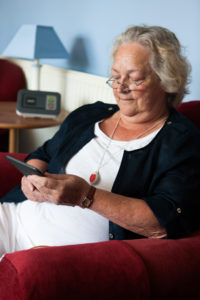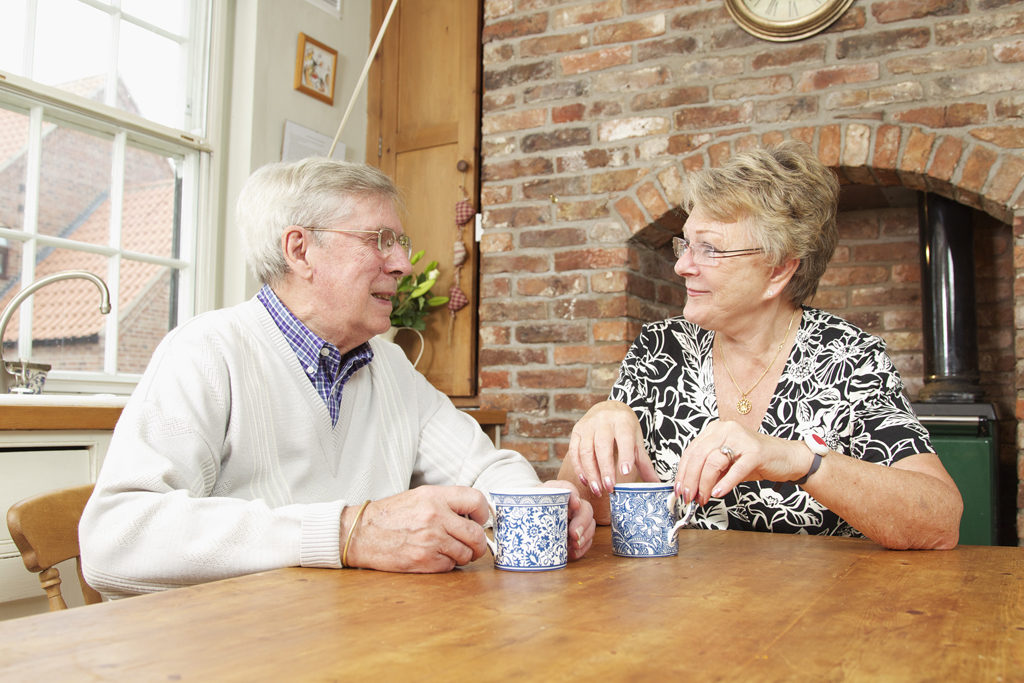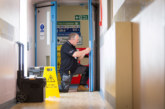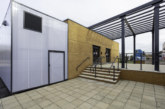How can we take action against dementia using technology? UK Managing Director of Tunstall Healthcare Gavin Bashar explains how digital technology such as telecare is assisting local authorities and improving services within their communities to help people living with dementia have a better quality of life.
In the UK, someone develops dementia every three minutes, and the Alzheimer’s Society estimates that the number of people living with the condition will exceed one million by 20251. With 70% of people in care homes living with dementia or severe memory problems2, it has never been as important to introduce measures into people’s lives to protect their dignity and support their independence, as well as reducing interventions which are currently costing the UK economy £26.3bn a year3.
We’re at a pivotal time in the transformation of digital services, with telecare, or assistive technology, playing a crucial part in enabling the delivery of care to people with dementia living in council homes or care facilities. As our social care and health systems continue to experience limited budgets and rising demand, it’s becoming increasingly important that providers employ solutions which enable care to be delivered in more effective and person-centred ways.

A range of solutions
Telecare systems can be tailored to the needs of the individual, helping to manage incidents such as falls, fires in the home, medication management and people leaving home and being unable to find their way back. They can be configured to ensure help is automatically provided in the event of an emergency, 24 hours day, from a carer, keyholder, response service or the emergency services as appropriate.
They can also enable live-in carers to carry out daily activities, or have uninterrupted sleep as they know they will be alerted in the event of an incident. The earlier technology is introduced, the easier it is to understand the eventual outcomes and how support can be given, enabling greater patient-centred, holistic care.
Telecare in practice
Tunstall is working with organisations across the UK to help support people with a wide range of needs using technology as part of services. NHS Calderdale Clinical Commissioning Group in West Yorkshire has been working closely with Calderdale Council since 2012, establishing a more consistent and sustainable model of care for older and vulnerable individuals in Calderdale.
Background and objectives
A truly person-centred approach was needed to best meet the needs of people with long-term health and care needs, and help to make efficient use of NHS resources. A clear objective was to reduce avoidable hospital attendances and admissions from care homes, increasing quality of life for residents and reducing demand on primary and secondary care.
Programme development
The Quest for Quality in Care Homes programme was developed, which combined a Multi-Disciplinary Team, real-time access to live clinical records for GPs and Quest for Quality in Care Homes Matrons, and telecare and telehealth systems, aiming to:
- Improve quality of life for residents.
- Reduce avoidable ambulance call outs, A&E attendance, hospital admissions and GP visits.
- Improve resident/patient care and safety.
- Respond more effectively to urinary tract infections, respiratory infections, falls and fractures.
- Support staff to feel confident in providing high quality care.
Programme results
The project has created a new model for care delivery, which is replicable and scalable, and addresses the challenge of care home residents being disproportionate users of local health services.
More than 1,300 residents have been supported in 38 homes as part of the Quest for Quality in Care Homes programme over the last five years, and the project has achieved significant financial efficiencies and associated cost savings since it was introduced. The latest phase of the programme evaluated the impact of using telecare technology to manage the risk of falls and mitigate their consequences for care home residents.
Comparing the impact of this initiative from 2016/17 to 2017/18:
- Emergency admissions relating to falls were reduced by 7.7%, resulting in an annual saving to the Quest programme in excess of £200,000.
- 50% of care homes saw a reduction in falls of at least 10%.
- Fall-related incidents as a percentage of total incidents decreased from 25.7% to 23.7% year-on-year.

Examples of the benefits in practice
One resident regularly gets out of bed with no support, and would often fall. The care home has set up Tunstall telecare sensors to alert them at the time he normally gets up so they can offer support. The number of falls per month has reduced from around 20 to zero.
A resident with dementia used to have around 12 falls per month with multiple admissions to hospital. She now wears a Tunstall Healthcare Vibby fall detector on her wrist, meaning staff can provide 24/7 monitoring and appropriate care according to her needs. The number of falls has reduced to around two per month.
The risk in the ‘dead end’ areas of the home has been reduced significantly since the use of telecare. Previously, residents have walked down the corridor and had a fall, resulting in hospital admissions. A PIR sensor has been fitted at the bottom of the corridor to alert staff during the day if someone goes down the corridor and there have been no falls in this area of the home since.
The cost of hospital stays has reduced as a result of the programme, saving £799,561 year on year when comparing 2014/15 to 2015/16.
Overall the Quest for Quality in Care Homes programme has supported the aims set out by NHS Calderdale CCG; making sure checks on residents are timely, improved self-management, increasing empowerment of care home staff at triage with a focus on prevention through telecare. Individuals now receive a holistic review on their move to a care home, leading to healthcare plans with clear goals, underpinned by digital innovations in connected care technology.










